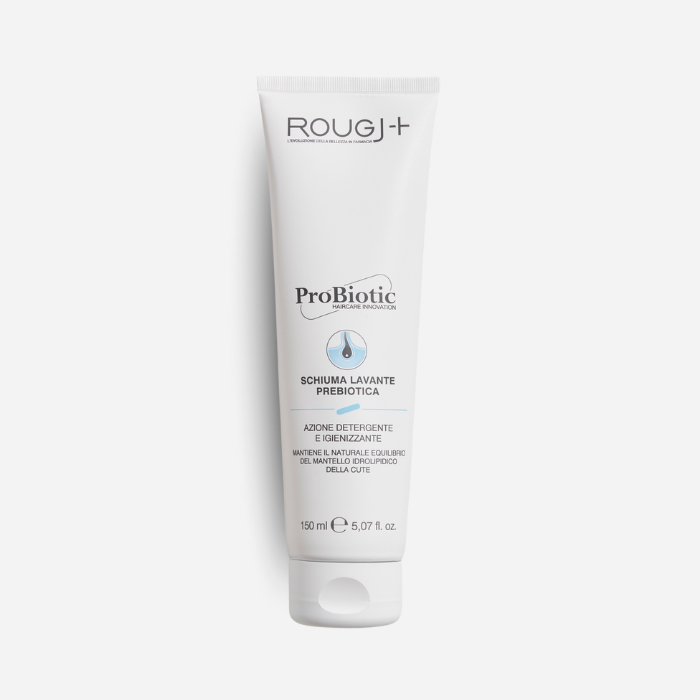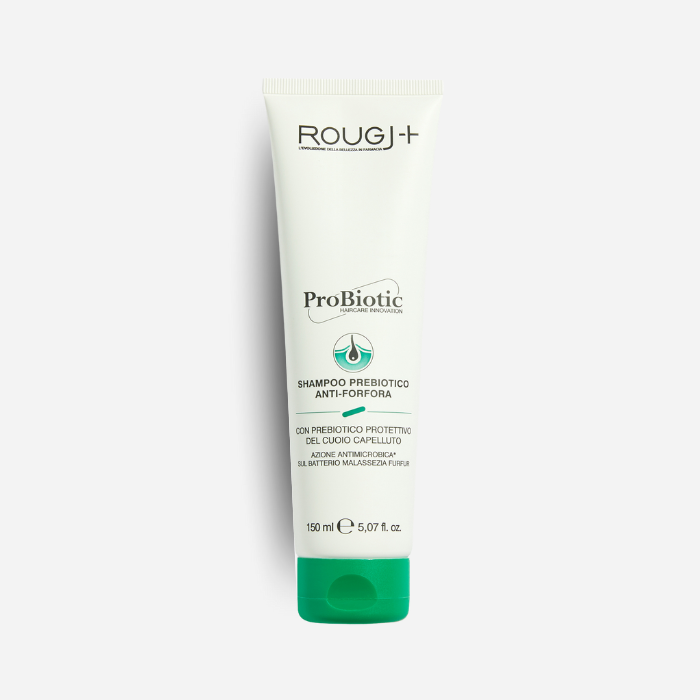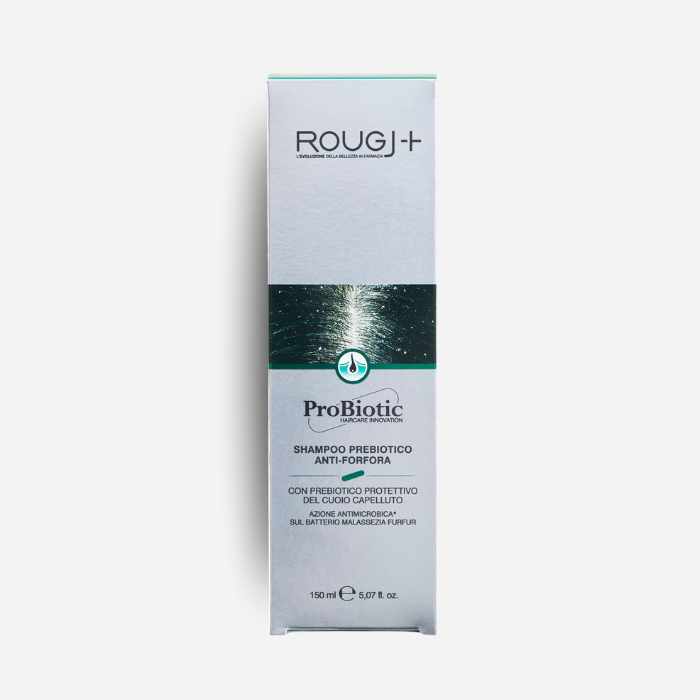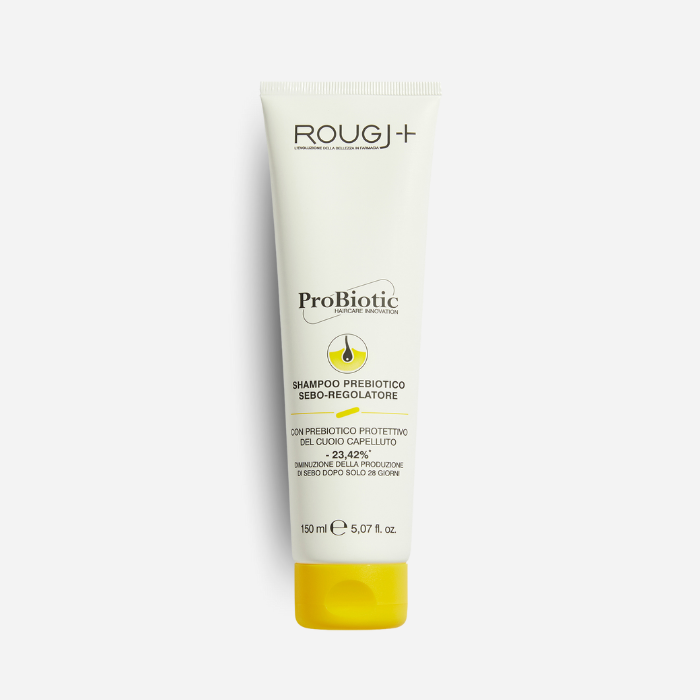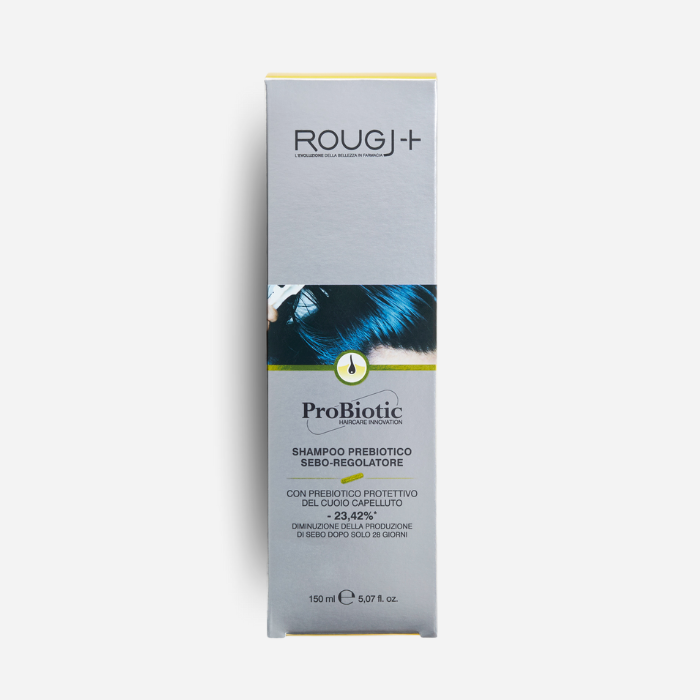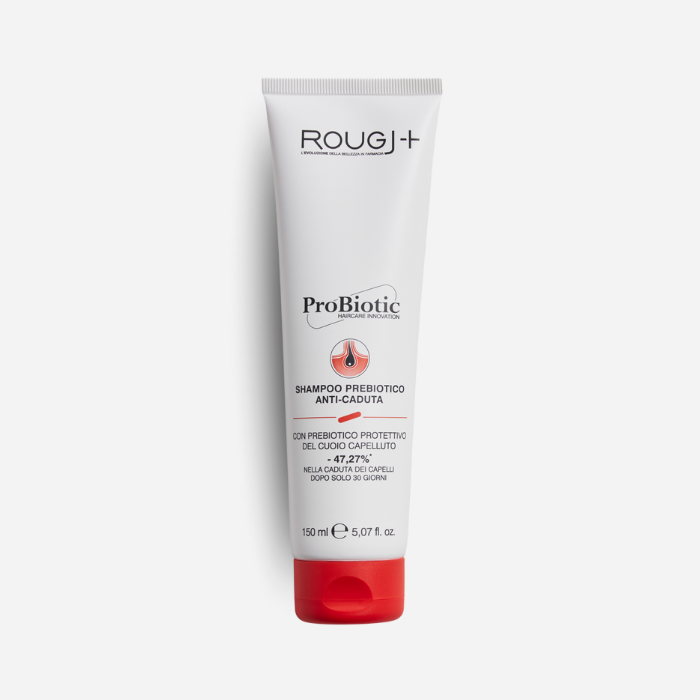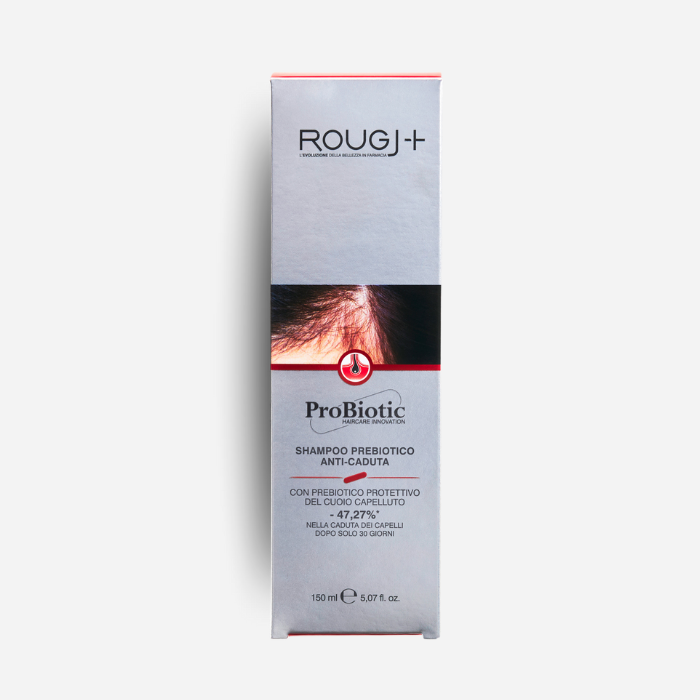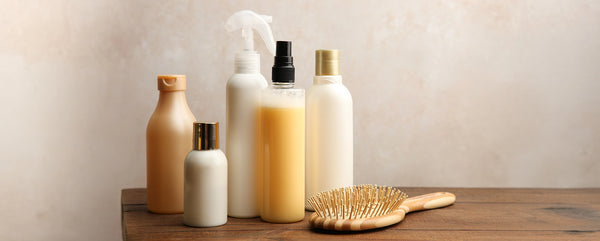
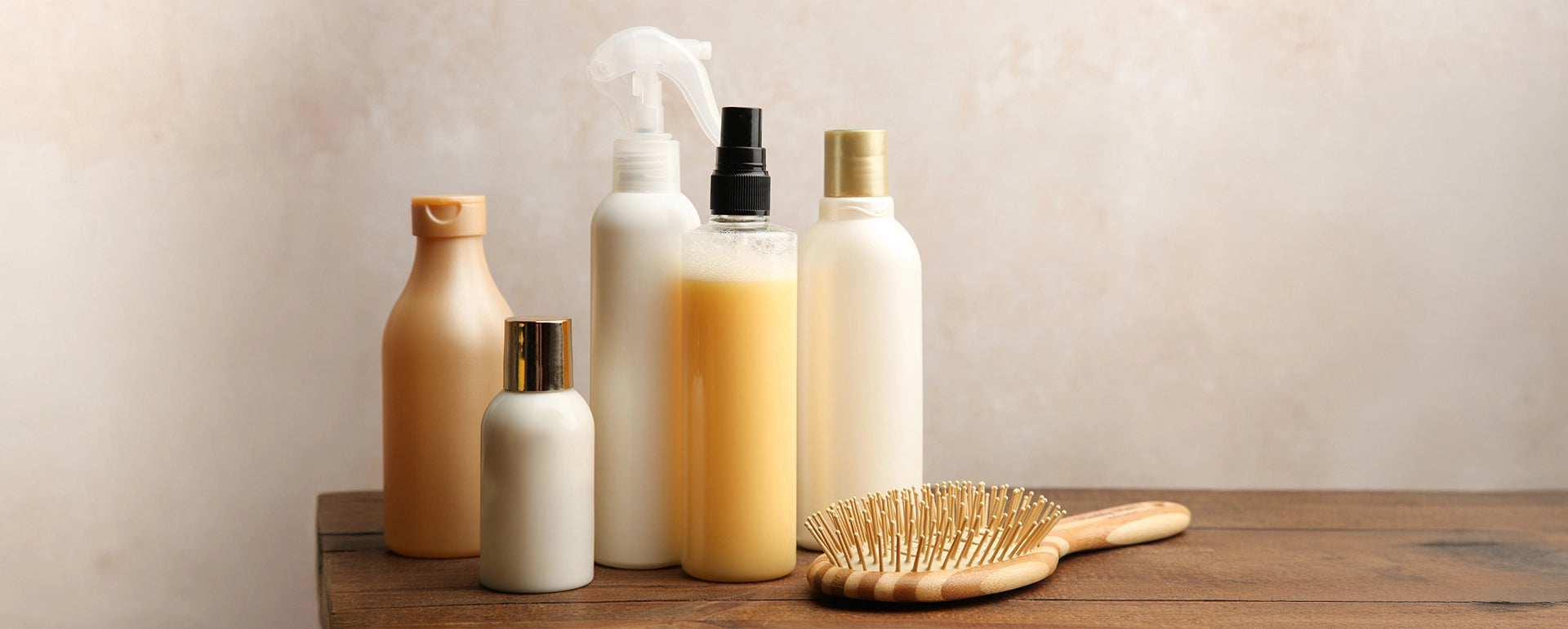
How to choose shampoo?
I capelli sono indicatori del nostro benessere, ci proteggono e riflettono il nostro stile di vita. Scegliere lo shampoo più adatto ai bisogni del tuo cuoio capelluto e dei tuoi capelli è fondamentale per non stressarli durante i lavaggi e creare il giusto equilibrio tra idratazione, lucentezza ed elasticità.
Gli shampoo non servono solo a detergere i capelli e a rimuovere il sebo, la pelle morta e le particelle inquinanti che si depositano sul cuoio capelluto, ma anche a contrastare problemi specifici, come la forfora o la caduta.
Come scegliere lo shampoo per lavare i capelli e il cuoio capelluto senza danneggiarli e mantenere la chioma sempre bella, sana e lucente? La verità è che non esiste una soluzione unica. Ad incidere sulla scelta dello shampoo più adatto sono:
- tipologia di cuoio capelluto e capello;
- frequenza di lavaggio;
- eventuali problemi di forfora o caduta.
1. Tipologia di cuoio capelluto e capello
Lo shampoo deve soddisfare le esigenze dei tuoi capelli per agire in modo efficace e non danneggiare la chioma durante i lavaggi. Il primo passo per scegliere il prodotto giusto è capire quali sono le caratteristiche e i bisogni del tuo cuoio capelluto e dei tuoi capelli.
Il tuo cuoio capelluto tende ad essere grasso o unto? Probabilmente, hai già provato di tutto: dai lavaggi quotidiani, anche più volte al giorno, ai lavaggi meno frequenti per tentare di tenere sotto controllo la produzione di sebo. La soluzione è utilizzare uno shampoo appositamente formulato per i capelli grassi.
Evita shampoo molto idratanti o per capelli ricci e crespi perché sono ricchi di sostanze oleose che rendono il cuoio capelluto più umido. Preferisci formulazioni meno idratanti e ad azione volumizzante o rinforzante perché contengono ingredienti che funzionano meglio per eliminare il sebo in eccesso. Anche uno shampoo chiarificante per una pulizia più profonda è perfetto, purché utilizzato con moderazione per evitare problemi di secchezza o irritazione.
Quando il cuoio capelluto è secco, pruriginoso o squamoso, la prima linea di difesa per contrastare il problema o fare in modo che non si aggravi è scegliere lo shampoo giusto. Evita prodotti volumizzanti, rinforzanti e fortificanti perché privano il cuoio capelluto dell’umidità di cui ha bisogno. Stai alla larga anche dagli shampoo che contengono solfati perché possono rendere la chioma ancora più secca. Uno shampoo delicato è più indicato per i capelli secchi perché svolge un’azione idratante e levigante, favorisce la ritenzione idrica e lenisce l’effetto crespo.
Oltre a considerare le caratteristiche del cuoio capelluto, è importante valutare la tipologia di capello.
Se i tuoi capelli sono fini, ovvero hanno una consistenza setosa, richiedono meno tempo per asciugarsi, sono poco voluminosi e diventano oleosi più facilmente, evita gli shampoo cremosi e preferisci prodotti volumizzanti. Questi sono in grado di rinforzare le ciocche, aumentando il diametro del fusto, senza appesantire i capelli, e rendendo la chioma più voluminosa.
I tuoi capelli sono spessi? Questi sono più inclini alla secchezza e all’effetto crespo. Rispondono meglio agli shampoo senza solfati, delicati e anti-secchezza, e a quelli che possiedono proprietà idratanti e rinforzanti, perfetti per nutrire la chioma e domarla.
2. Frequenza dei lavaggi
La scelta dello shampoo dipende non solo dalla tipologia di cuoio capelluto e capello, ma anche dalla frequenza dei lavaggi. Di norma, il consiglio è fare lo shampoo due o tre volte a settimana per mantenere i capelli puliti ed eliminare le cellule morte, il sebo e le particelle di smog che si depositano sul cuoio capelluto.
Vivi in ambienti particolarmente inquinati o pratichi attività sportiva tutti i giorni? Nessuno vieta di lavare i capelli quotidianamente. L’importante è scegliere uno shampoo appositamente formulato per i lavaggi frequenti perché questi ultimi mettono a dura prova la chioma, irritandola.
Che tu abbia un cuoio capelluto grasso o secco, preferisci uno shampoo extra-delicato e non troppo grasso per assicurare ai tuoi capelli il giusto nutrimento senza appesantirli, renderli più voluminosi e dornagli un aspetto più luminoso. Meglio se privo di oli vegetali che potrebbero occludere i bulbi piliferi e se ad azione purificante e rinforzante.
Quando si ha poco tempo da dedicare al lavaggio dei capelli, ma si vuole sfoggiare una chioma fresca e ordinata, lo shampoo secco è la soluzione per eccellenza. Gli ingredienti contenuti all’interno della sua formula assorbono il sebo in eccesso e riducono l’effetto unto, donando ai capelli una parvenza di pulito.
Per quanto efficace, lo shampoo secco non è altro che un rimedio d’emergenza e non sostituisce in nessun modo il classico lavaggio con acqua e shampoo tradizionale.
3. Problemi ai capelli: forfora e caduta
Lo shampoo non è soltanto un detergente. Non si limita ad eliminare gli eccessi di sebo, le cellule morte e le impurità che si depositano sul cuoio capelluto. In alcune formulazioni, funge da coadiuvante per contrastare problemi come la forfora e la caduta dei capelli.
Eliminare la forfora non è affatto facile e utilizzare uno shampoo sbagliato può aggravare il problema. Il consiglio è utilizzare uno shampoo antiforfora appositamente formulato per:
- rimuovere le squame presenti sul cuoio capelluto;
- igienizzare a fondo la zona;
- regolare la produzione di sebo.
Gli shampoo antiforfora hanno una formulazione leggera e naturale e contengono principi attivi e ingredienti specifici che svolgono un’azione antibatterica contro le infezioni micotiche. Sono purificanti, alleviano il prurito e contrastano la desquamazione.
I detergenti aggressivi sono da evitare perché irritano la pelle, stimolano le ghiandole sebacee e causano un effetto inverso rispetto a quello desiderato, aggravando il problema.
I tuoi capelli sono particolarmente deboli e cadono in grosse quantità? Inizia un’hair routine anticaduta e utilizza uno shampoo formulato per contrastare il diradamento progressivo e persistente della chioma.
Gli shampoo anticaduta:
- rinforzano e infoltiscono la chioma;
- stimolano la crescita dei capelli;
- rallentano il diradamento;
- evitano l’atrofizzazione dei bulbi piliferi.
Sono privi di sostanze chimiche aggressive e hanno una formulazione delicata, ricca di nutrienti e principi attivi che rinvigoriscono la chioma, donandole un aspetto sano e luminoso.
Adesso che sai come scegliere lo shampoo più adatto a te e ai bisogni dei tuoi capelli, dai un’occhiata al nostro shop. Dallo shampoo antisebo a quello anticaduta, da quello antiforfora a quello universale: i nostri detergenti sono 100% Made in Italy e sono gli alleati perfetti per ottenere i risultati desiderati.
